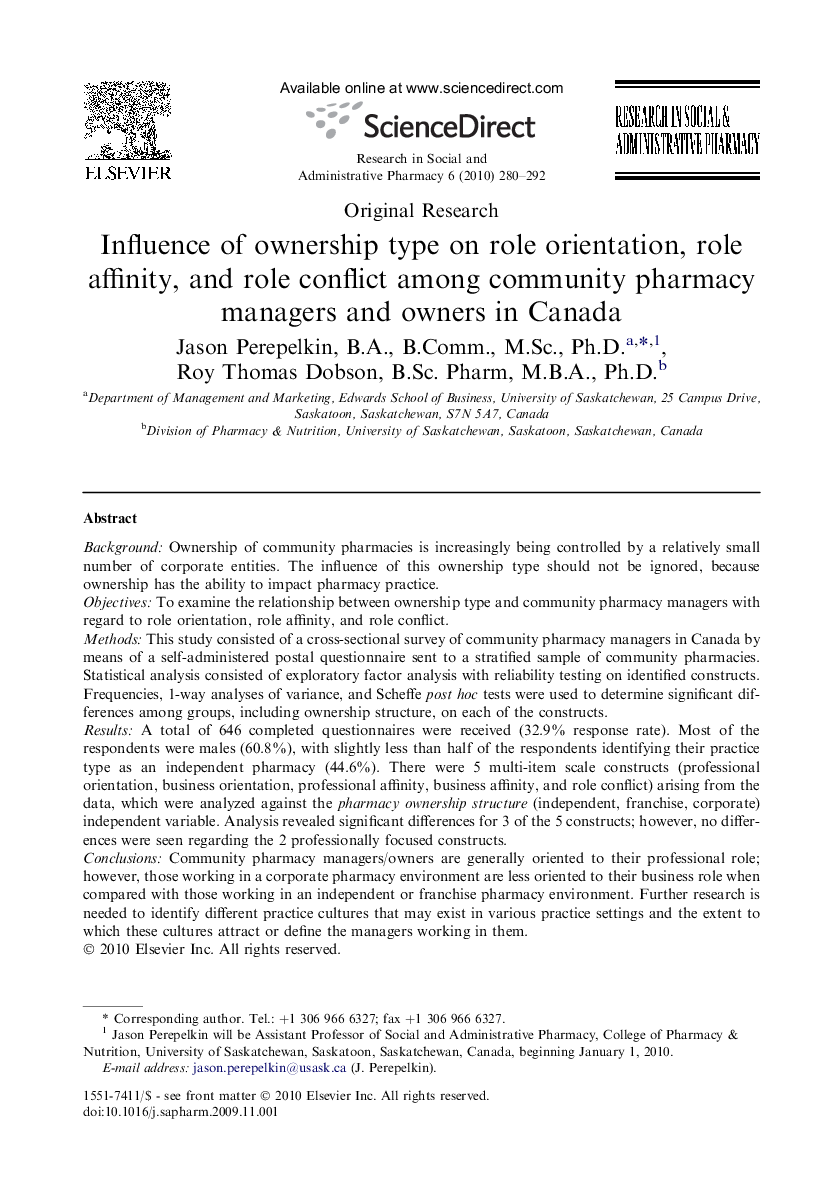| Article ID | Journal | Published Year | Pages | File Type |
|---|---|---|---|---|
| 2508875 | Research in Social and Administrative Pharmacy | 2010 | 13 Pages |
BackgroundOwnership of community pharmacies is increasingly being controlled by a relatively small number of corporate entities. The influence of this ownership type should not be ignored, because ownership has the ability to impact pharmacy practice.ObjectivesTo examine the relationship between ownership type and community pharmacy managers with regard to role orientation, role affinity, and role conflict.MethodsThis study consisted of a cross-sectional survey of community pharmacy managers in Canada by means of a self-administered postal questionnaire sent to a stratified sample of community pharmacies. Statistical analysis consisted of exploratory factor analysis with reliability testing on identified constructs. Frequencies, 1-way analyses of variance, and Scheffe post hoc tests were used to determine significant differences among groups, including ownership structure, on each of the constructs.ResultsA total of 646 completed questionnaires were received (32.9% response rate). Most of the respondents were males (60.8%), with slightly less than half of the respondents identifying their practice type as an independent pharmacy (44.6%). There were 5 multi-item scale constructs (professional orientation, business orientation, professional affinity, business affinity, and role conflict) arising from the data, which were analyzed against the pharmacy ownership structure (independent, franchise, corporate) independent variable. Analysis revealed significant differences for 3 of the 5 constructs; however, no differences were seen regarding the 2 professionally focused constructs.ConclusionsCommunity pharmacy managers/owners are generally oriented to their professional role; however, those working in a corporate pharmacy environment are less oriented to their business role when compared with those working in an independent or franchise pharmacy environment. Further research is needed to identify different practice cultures that may exist in various practice settings and the extent to which these cultures attract or define the managers working in them.
